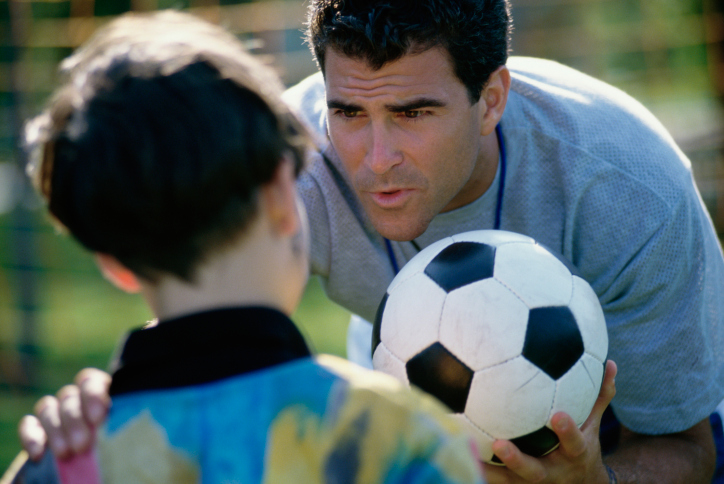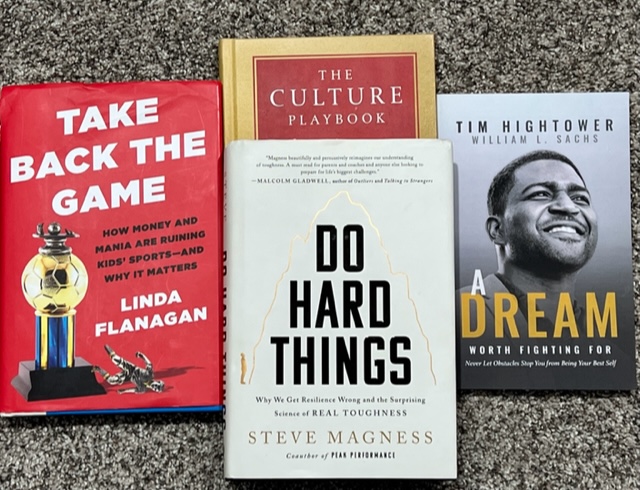Every month we get interesting emails and messages from our Changing the Game family, and once in a while we get one that is worth throwing to the community. We got an email from a set of parents, both former NCAA Division I athletes, with three young children highly involved in sports. As avid readers and listeners of the podcast, they have done their best to introduce their children to a number of sports, but have come face to face with the youth sports industrial complex and are looking for advice. I thought our community might be a great place to start. Here are their questions:
1. Is it possible to over-sample on sports in the early years (younger than 12)? You mention that we should focus on developing the athlete first, and sport specific skills second. That said, we feel like if our kid takes a season or two off to try out a different sport, will they have challenges catching up in the future if they go back to the original sport?
2. On your podcast with David Epstein, he supported the generalist approach in the early years “if you can handle the de-selection.” Knowing that kids who specialize in the early years will perform better in the short term, how do you help your kids through this process? Even though we know we are doing what’s best for our kids by not specializing, it can still be difficult to explain to them why there are performance gaps and why they shouldn’t internalize it. Any tips on how to approach this with kids?
Wow, both are fantastic questions that get at the nuance of parenting in today’s youth sports environment. Here are my thoughts, but I would love in the comments if you all could chime in with your experiences and ideas.
Question 1: Sampling sports is a great way to not only develop overall athleticism but it will also help your son or daughter find the best fitting sport for them. If we choose their sport, they may never find out that lacrosse was a better fit than soccer, or that they really love baseball more than anything else. When you take a season off to try something new, your child definitely falls behind those kids who stay in the same sport, but oftentimes this is just temporary, as the kid who returns a season later with renewed vigor and enthusiasm, as well as some other movement skills, can often improve quickly.
It is important to recognize that not all sports are the same. Some sports such as American football, lacrosse, basketball and baseball have a huge emphasis on specific body types and levels of athleticism, and do not necessarily require as many hours to learn basic movement and game patterns. These are sports that tend to favor athletes who specialize at later ages. There are numerous examples of athletes who came to these sports late and still became truly elite, as their genetic profile (height, reach, speed, etc) was a major factor that allowed them to excel.
Other sports, such as soccer and ice hockey, are what we term wicked learning environments, with many hours required to not only develop the requisite skills, but to learn and recognize patterns of play and the nuances of the game. In these cases, there are not examples of athletes who came to the game very late and made it to the highest levels of the game. A child pursuing these sports probably cannot get away with sampling as much, as it gets harder to catch up. So choose your sports and recognize it is not a one size fits all.
Question 2: This is a great one that gets at the heart of the matter. On our podcast with David Epstein, author of Range: Why Generalists Triumph in a Specialized World, he supported the generalist approach in the early years “if you can handle the de-selection.” This is the biggest problem we face in youth sports today. Early selections, made far before the science says we should be selecting “talent,” become self-fulfilling prophecies all too often. Once you are out of the system, it is often very hard to get back in.
This is a terrible model, as it forces young children and their families to choose year round sports at very young ages, often against the wishes of the child. If they do not commit to year round soccer/hockey/baseball/lacrosse/you name it at 8-9 years old, they are out. So many families do commit, and 3-5 years later those kids end up quitting, because they have lost ownership, enjoyment, and all intrinsic motivation to keep playing. Meanwhile, other kids who are just coming into their own and would be a great addition to a sport have been out of the pipeline for years, and are not coming back. These selections/deselections are often also made by untrained volunteer selectors with only a short term focus on the season ahead. It is a disaster.
So my answer is yes, we have to be prepared to follow our kids’ lead and face deselection and be OK with it, because our son or daughter chose to keep playing different sports. We should look for clubs that allow and encourage this early sampling. We should focus less on results, and helping our kids find their passion instead of adults trying to determine it for them. And we don’t have to let them play EVERYTHING! We can certainly limit things, one sport per season, etc. The financial costs and time commitments with sampling can also be overwhelming which will also force some families to choose one sport (check out this podcast we did with Joe Baker and Sandy Moser reexamining specialization.)
Enough from me. These questions get at the heart of youth sports today, and I know are faced by many, many parents. If you have been through this, what do you think? Did you get back into the pipeline after deselection? Did your kids find a way to keep playing multiple sports? Please share some of your thoughts for a follow up article.













Comments